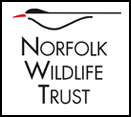The press release issued by Norfolk Wildlife Trust on 1 December 2020.
If the Western Link for the NDR were to go ahead on its proposed route, it would drive through what is likely to be the largest known ‘super-colony’ of barbastelle bats in the UK, according to new independent surveys, risking its complete loss
Norfolk Wildlife Trust wrote to the Council in September expressing its concerns at the wildlife impacts of the Western Link proposal, and requesting that the Council revisits alternative options to meet local transport issues.
In October, a presentation was made at the East of England Bat Conference by independent bat experts, Wild Wings Ecology, presenting the results of their surveys on barbastelles and the Western Link route. The full results of the surveys are still being written up, but the findings clearly show that there are significantly greater numbers of barbastelle bats on the route and in surrounding woodlands than have been found by the Council’s own surveys.
The results have identified the presence of a breeding colony directly on the road route and that this is part of a wider ‘super-colony’ occupying surrounding woodlands in the local area. Indications are that the barbastelle population here is likely to be the largest in the UK, with surveys identifying at least 270 individuals.
Dr Charlotte Packman, the ecologist who identified the size and scale of the bat population said:
“Our research has led to the discovery of an extraordinary barbastelle ‘super-colony’, part of which would be directly cut through by the proposed Norwich Western Link and the remaining part substantially impacted by the road scheme. This is without doubt a nationally important area (and quite possibly the most important area) in the country for this very rare species. The destruction of barbastelle maternity colony woodlands is not permissible under wildlife laws and would be unprecedented. We believe that the predicted substantial and multifarious negative impacts of the proposed road on this protected species cannot be effectively mitigated or compensated for”.
Conservation Officer at Norfolk Wildlife Trust, Mike Jones said:
“It is clear these results indicate that the barbastelle population here is likely to be the largest known ‘super-colony’ in the UK. The road would drive through at least one colony woodland, effectively permanently destroying the colony there, and would seriously damage the ability of the remaining colonies in nearby woodlands to survive. Bats are long-lived species with low birth rates, and there is a very real risk that these losses to the proposed road would lead to the local extinction of this species in the long-term, with consequent impacts on the future of the species nationally. We do not believe it is possible to mitigate or compensate for impacts on this scale.”
Norfolk Wildlife Trust has written to the Council recently about these significant findings and has also written directly to Baroness Vere, the Minister for Transport to request that the Department for Transport defers from any further consideration of funding to Norfolk County Council (NCC) for the Norwich Western Link road proposal.
Chief Executive of Norfolk Wildlife Trust, Pamela Abbott said:
“We appreciate that this information about the importance of the area for barbastelle bats was not available to any interested parties earlier in the process when choices were made. However, given the significance of these new findings, we do not believe it is appropriate for work on this approach to be pursued further.
“We therefore urgently ask the Council to pause any further work on the road application whilst the importance of this new information is considered. We continue to request that the Council gives genuine consideration to alternative options.”
